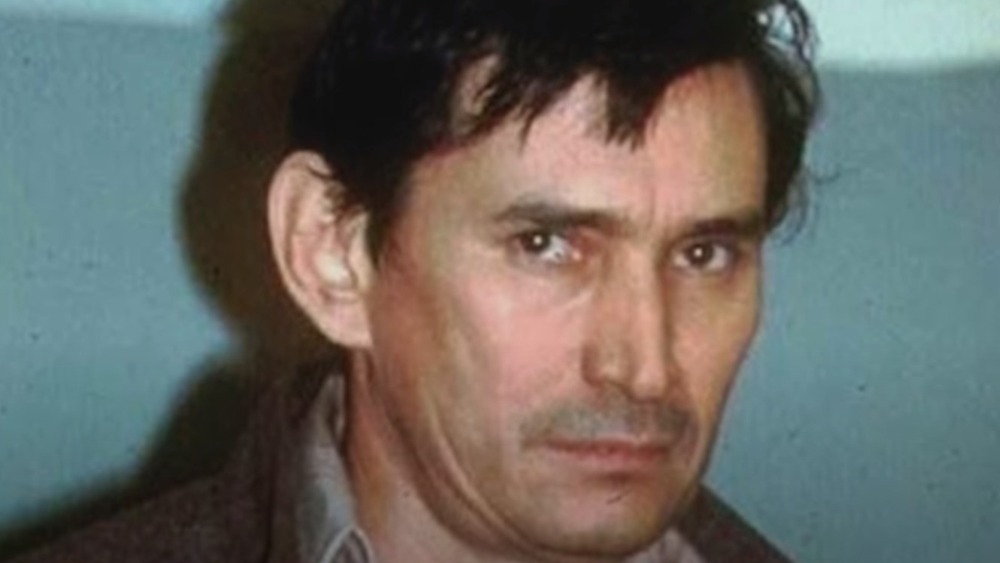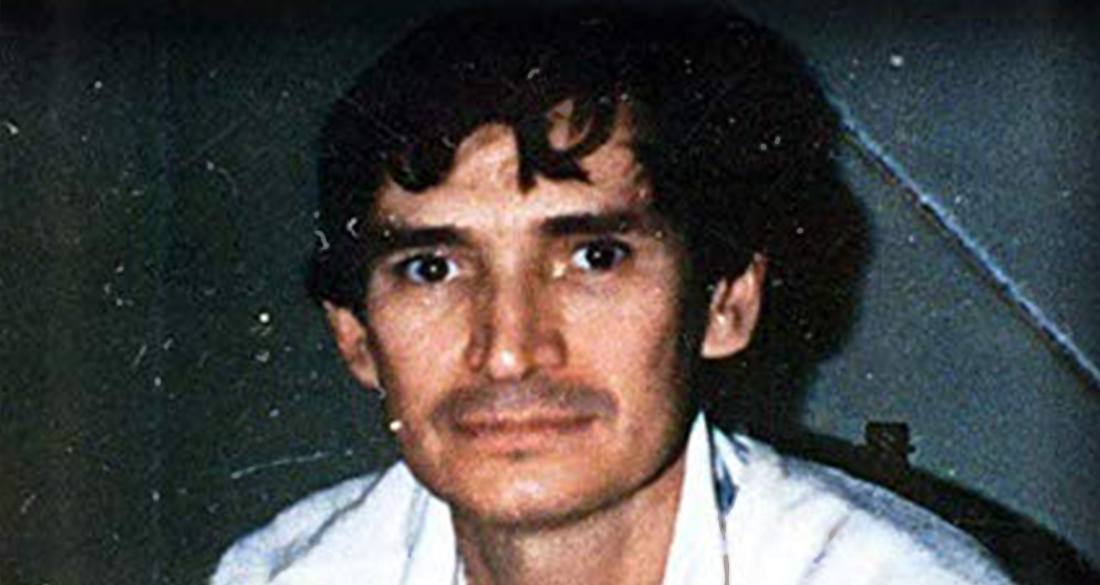Miguel Ngel Flix Gallardo: The Rise & Fall Of "El Padrino"
Is it possible for one man to reshape an entire nation's criminal landscape? The life of Miguel ngel Flix Gallardo, better known as "El Padrino" or "The Godfather," proves that the answer is a resounding yes. His story, a chilling blend of ambition, ruthlessness, and the allure of illicit wealth, offers a stark portrayal of the rise of modern Mexican drug trafficking.
Born in Culiacn, Sinaloa, Mexico, on January 8, 1946, Flix Gallardo's trajectory from a state police trooper to the head of a sprawling drug empire is a testament to his cunning and influence. His worsening health has prompted the national human rights commission to intercede in his case, highlighting the complexities of his legacy.
| Attribute | Details |
|---|---|
| Full Name | Miguel ngel Flix Gallardo |
| Born | January 8, 1946, Culiacn, Sinaloa, Mexico |
| Aliases | "El Padrino" (The Godfather), "El Jefe de Jefes" (The Boss of Bosses) |
| Height | 1.8 meters (180 cm) |
| Weight | 68 kg |
| Early Life | Born in Culiacn, Sinaloa, Mexico. Began working as a Sinaloa State Police trooper. Became the bodyguard of Leopoldo Snchez Celis, the then governor of Sinaloa. |
| Career | Founder of the Guadalajara Cartel. Controlled Mexico's drug trafficking system in the 1980s. |
| Criminal Activities | Drug trafficking (primarily cocaine), money laundering, murder, arms trafficking. Ordered the murder of DEA agent Enrique "Kiki" Camarena. |
| Associates | Rafael Caro Quintero, Ernesto Fonseca Carrillo |
| Arrest | April 8, 1989 |
| Convictions | Murder, drug trafficking, weapons charges. Sentenced to 40 years in prison. |
| Current Status | Currently incarcerated. Granted house arrest due to deteriorating health. |
| Reputation | One of the biggest drug traffickers in Mexican history. Founder of the modern Mexican drug trade. |
| In Popular Culture | Featured in the Netflix series "Narcos: Mexico," played by Diego Luna. |
| Reference Website | Britannica |
Flix Gallardo's journey began in the Mexican state of Sinaloa, where he started his career as a police officer. A photograph captures him in his police uniform, a stark contrast to the image of the ruthless drug lord he would become. As a young officer, he served as the bodyguard for Leopoldo Snchez Celis, then the governor of Sinaloa. This early association provided him with valuable connections and an understanding of power dynamics.
- Alpo Martinez Net Worth Facts Legacy Explained 2024 Update
- Jeffrey Epsteins Net Worth A Look Back Todays Value
By the 1980s, Flix Gallardo, along with his associates Rafael Caro Quintero and Ernesto Fonseca Carrillo, had established control over Mexico's burgeoning drug trafficking system. He was also known as "El Zar de la Droga," (the Drug Tsar) a title that reflected the magnitude of his influence. His massive success with the Guadalajara Cartel allowed him to command a vast network that moved cocaine across borders and generated billions of dollars.
Gallardo's organization was more than just a cartel; it was a sophisticated business. They managed to traffic cocaine to the U.S. The Guadalajara Cartels influence extended beyond simple smuggling; it involved complex partnerships with Colombian cartels, navigating corruption within the Mexican government, and eliminating any threat that stood in their way. This ruthless approach, combined with his strategic acumen, propelled him to the top of the criminal hierarchy.
Flix Gallardo's notoriety was cemented by his involvement in the murder of DEA agent Enrique "Kiki" Camarena in 1985. This act, perceived as an attack on the United States, triggered a massive crackdown and marked a turning point in the "War on Drugs." Gallardo himself was questioned by the DEA about the murder, but he denied any involvement.
The arrest of Flix Gallardo on April 8, 1989, was a significant victory for law enforcement. He was sentenced to 40 years in prison for a range of crimes, including the murder of Camarena, drug trafficking, and weapons charges. However, even from behind bars, he continued to exert influence, initially managing his operations through cell phone communication. This ability to maintain control, even in confinement, further illustrates the depth of his power.
Flix Gallardos impact extended beyond his criminal activities. He is considered the founder of the modern Mexican drug trade. He reshaped the landscape of organized crime, establishing the model that subsequent cartels would follow. His strategic vision and ruthlessness set a new standard for the drug trade in Mexico. His cartel was among the first to partner with Colombian drug lords, establishing efficient routes and expanding the drug market.
His legacy is complex. He is a figure of both fascination and revulsion. His story has been immortalized in books, documentaries, and the popular Netflix series "Narcos: Mexico," where he is portrayed by actor Diego Luna. These accounts, while often dramatized, provide insights into his life, methods, and the era in which he operated.
Currently, Flix Gallardo is incarcerated, but his worsening health has led to the intercession of the national human rights commission. Despite his confinement, his name remains synonymous with the rise of the Mexican drug trade. He is the "jefe de jefes," the boss of bosses, a title earned through violence, cunning, and an unwavering pursuit of power. The man who controlled drug routes and partnered with Colombians, remains an enigma, a cautionary tale, and a historical figure who reshaped the criminal world.
In a rare interview from prison, Flix Gallardo spoke publicly for the first time in decades. He has denied his crimes while providing glimpses into his thoughts and experiences. His life continues to generate headlines, and the question of his release date remains. The man known as "El Padrino" continues to be a central figure in the ongoing narrative of Mexican drug trafficking, a grim reminder of the long-lasting impact of his decisions.
From his humble beginnings as a Sinaloa state police trooper, to his reign over a vast drug empire, Miguel ngel Flix Gallardo's story is a testament to the corrupting influence of power, the allure of wealth, and the devastating consequences of the drug trade. His life serves as a chilling reminder of the lengths people will go to in pursuit of wealth and control, and the enduring legacy of a man who changed the course of Mexican history.
The Guadalajara Cartel, under Gallardo's leadership, played a pivotal role in the importation of cocaine from Colombia into the United States. This operation had a significant impact on the global drug trade, setting the stage for the emergence of powerful cartels that would follow. His strategies, methods, and organizational structure became the blueprint for the drug trade that followed.
The arrest of Gallardo and the subsequent dismantling of the Guadalajara Cartel did not end the drug trade in Mexico. Instead, it fractured the organization, leading to the rise of new cartels and a period of intense violence. His actions and influence continue to affect Mexico's society. His life demonstrates the complexities and the far-reaching consequences of drug trafficking.
While many details of his life remain shrouded in secrecy, his story continues to fascinate and repel. It's a tale of ambition, corruption, and the relentless pursuit of power, one that continues to resonate in the modern world. The national human rights commission's intervention highlights the complicated nature of his legacy, reminding everyone of the impact of his choices.

Miguel Ángel Félix Gallardo estrena cuenta de Twitter ABC Noticias

How Miguel Angel Felix Gallardo Became A Notorious Drug Lord

Miguel Ángel Félix Gallardo, The 'Godfather' Of Cocaine Trafficking